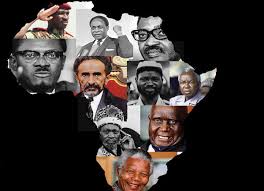Bureaucracy in the Church Members Today: Touching the ‘Who is Who’
Written by John on November 5, 2025
The church, once a sacred refuge for equality and service, is increasingly showing signs of bureaucracy that mirror the systems of the world. Instead of a spiritual community built on humility and service, many churches today are becoming structured around power, status, and influence — where the “who is who” determines the flow of activities, opportunities, and even spiritual recognition.
In the early days of the church, leadership was based on calling, faith, and service to others. But in today’s church setting, titles, positions, and social standing have quietly become the new qualifications. Those with influence — the wealthy, the educated, or the politically connected — are often placed on pedestals, while the humble and devoted believers find their voices drowned out by bureaucracy.
This emerging structure has led to spiritual stagnation. Committees, approvals, and unnecessary protocols now stand in the way of genuine ministry. Simple acts of service must pass through layers of “permission,” and innovation is often suppressed if it doesn’t align with the preferences of the elite few. Instead of empowering all members to serve freely, the church bureaucracy creates an invisible wall that divides the congregation into “decision-makers” and “followers.”
This “who is who” mentality not only breeds favoritism but also contradicts the very heart of the gospel — where all believers are equal before God. The Apostle James warned against honoring the rich while despising the poor in the same congregation:
“My brothers and sisters, believers in our glorious Lord Jesus Christ must not show favoritism.” – James 2:1 (NIV)
Yet, in modern churches, seating arrangements, leadership appointments, and even access to pastors often reflect social rank rather than spiritual maturity.
It is time for the church to return to its foundational mission — to serve rather than to rule, to empower rather than to control. True leadership in the body of Christ is not about status but about servanthood. The church must dismantle the bureaucratic walls that hinder unity and revive the simplicity of fellowship that once made Christianity a powerful force of love and transformation.
Only when we shift our focus from “who is who” to “who serves who” will the modern church regain its authenticity, humility, and divine impact.
By John

The author is an experienced radio journalist and media manager.






